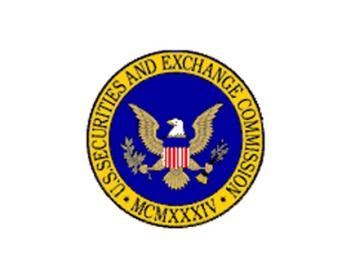On September 23, the Securities and Exchange Commission Advisory Committee on Small and Emerging Companies (Advisory Committee) met to discuss, and submit to the SEC, recommendations regarding (1) public company disclosure effectiveness, focusing on the definition of “smaller reporting company” and disclosures by smaller reporting companies; (2) modernizing Rule 147 under the Securities Act of 1933 (a “safe harbor” for intrastate securities offerings) to facilitate recently enacted and future state-based crowdfunding initiatives; and (3) the regulation of finders and other intermediaries in small business capital formation transactions. Additionally, the SEC announced its renewal of the Advisory Committee (the term of which was originally scheduled to expire in September 2015) for an additional two years.
Smaller Reporting Companies. The Advisory Committee’s written recommendations note that (1) “emerging growth companies” are provided with a number of less-burdensome disclosure requirements as a result of the Jumpstart Our Business Startups Act, relative to smaller reporting companies; and (2) the accommodations granted to emerging growth companies with respect to these disclosure requirements also would be beneficial for smaller reporting companies.
The Advisory Committee recommended that the SEC revise the definition of “smaller reporting company” under SEC rules to include companies with a public float of up to $250 million (an increase from the current $75 million threshold). The Advisory Committee noted that this revision would exempt a smaller reporting company from the SEC’s pay ratio rule, the auditor attestation requirement with respect to internal control over financial reporting and the requirement to provide a Compensation Discussion & Analysis. Additionally, the Advisory Committee recommended that SEC rules be revised to extend to smaller reporting companies the same disclosure exemption accommodations that are available to emerging growth companies (e.g., providing an exemption from say-on-pay and say-on-frequency votes).
Modernizing Rule 147. The Advisory Committee also expressed its concern that, while Rule 147 provides a safe harbor for companies seeking exemption from federal registration for intrastate offers and sales of securities, the rule makes it difficult for issuers to take advantage of the new state-based crowdfunding provisions (recognizing that, in the near future, a majority of states will have adopted some form of crowdfunding legislation). Specifically, the Advisory Committee noted that the rule (1) does not allow offers to be viewed by out-of-state residents (limiting, for example, offerings placed on publicly available websites); (2) requires that 80 percent of the proceeds be generated in-state, 80 percent of the issuer’s assets are held in-state, and at least 80 percent of gross proceeds raised be deployed in-state, and (3) requires that the issuer be incorporated or organized in the state where the intrastate offering would be conducted.
The Advisory Committee recommended that the SEC allow offers made in reliance on Rule 147 to be viewed by out-of-state residents, while still requiring that all sales be made only to residents of the state in which the issuer has its main offices. The Advisory Committee also recommended removing all of the percentage thresholds referenced above, and that the SEC evaluate whether alternative criteria should be used to determine whether an issuer has sufficient nexus with the state where all sales occur. The Advisory Committee also called for eliminating the requirement that the issuer be incorporated or organized in the same state where all sales occur.
Regulating Finders and Other Intermediaries. The Advisory Committee noted that less than 15 percent of Regulation D private offerings use financial intermediaries, such as broker-dealers or finders, in part due to the financial intermediaries’ legal costs and risks involved in undertaking small transactions and ambiguities in the definition of “broker.” The Advisory Committee also noted that a number of smaller market participants use unregistered parties to identify and solicit investors.
The Advisory Committee recommended that the SEC clarify the ambiguity in broker-dealer regulation by determining that persons who receive transaction-based compensation solely for making introductions to prospective investors are not subject to broker registration under the Securities Exchange Act of 1934. The Advisory Committee also recommended that the SEC exempt from federal broker registration any intermediary registered as a broker under state law that is actively and regularly involved in private financings and the solicitation of investors. The Advisory Committee asked the SEC to incrementally address these issues rather than waiting to develop a comprehensive solution, and recommended that the SEC coordinate with the North American Securities Administrators Association and the Financial Industry Regulatory Authority to ensure coordinated and measured regulation.
The text of the recommendations from the September 23 meeting may be found here.





 i
i

